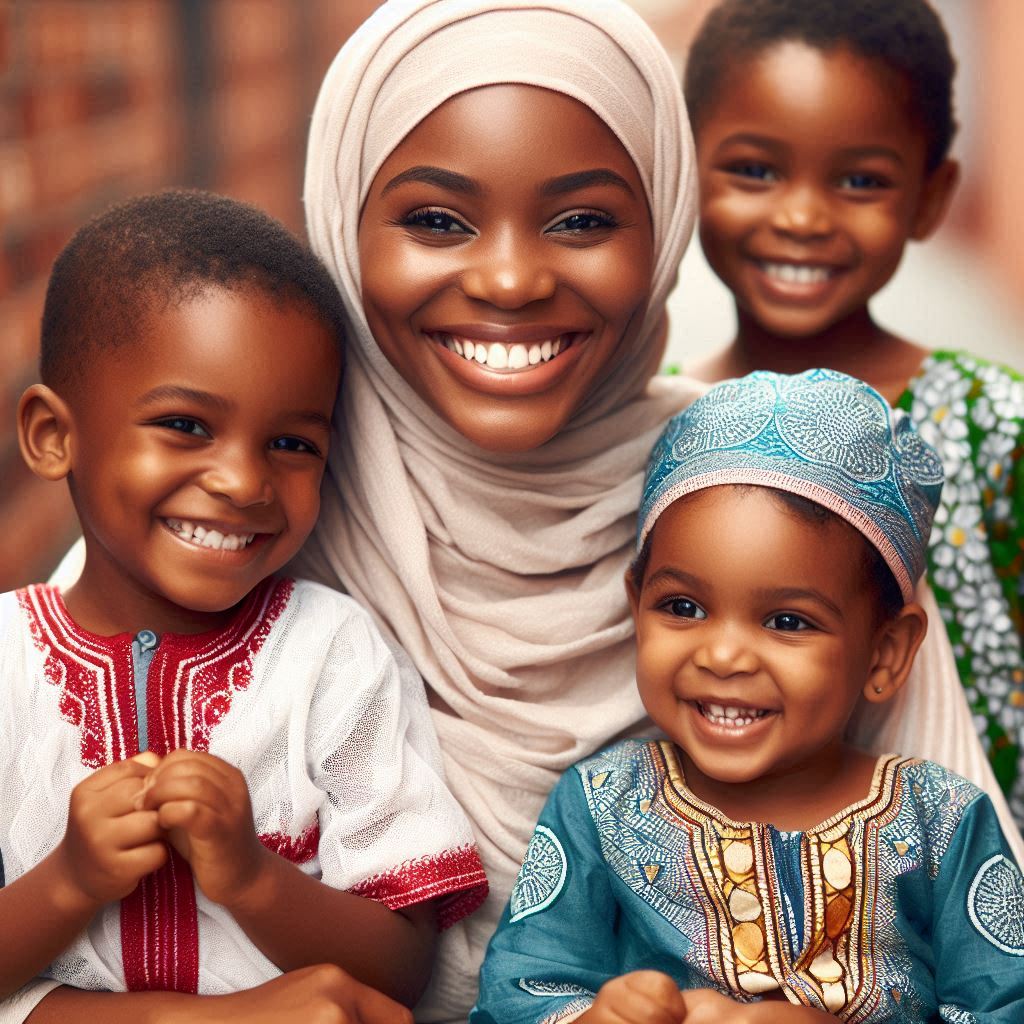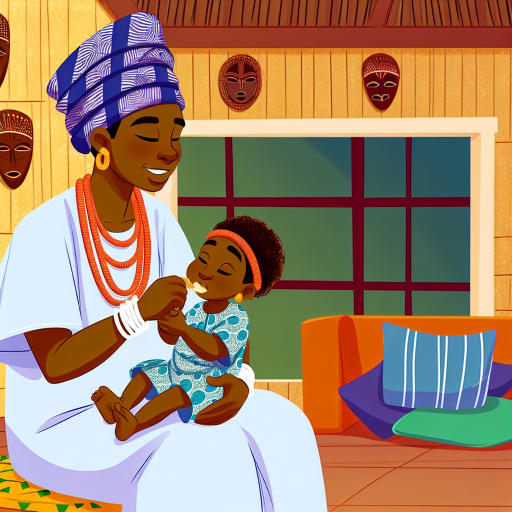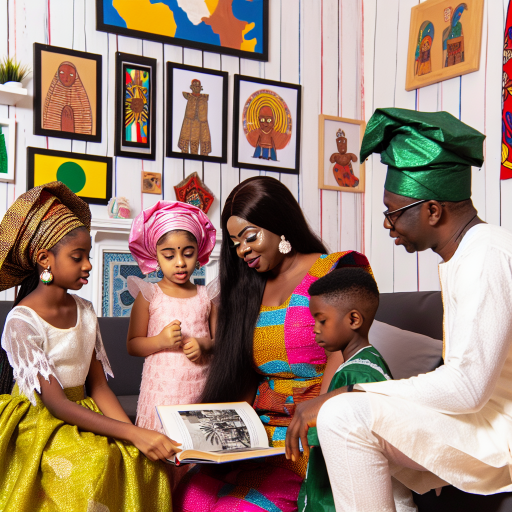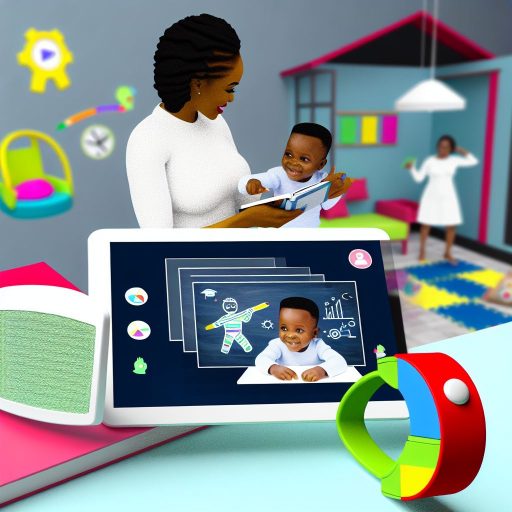Introduction
Definition of multiculturalism in Nigeria
Multicultural parenting in Nigeria encompasses the coexistence of diverse ethnic groups.
Each group brings unique customs, languages, and beliefs.
This diversity enriches the nation’s cultural fabric.
It fosters a dynamic society where different values interact.
In Nigeria, over 250 ethnic groups contribute to this multicultural landscape.
Understanding these differences is crucial in fostering social harmony.
Importance of understanding cultural diversity in parenting
Recognizing cultural diversity is essential for effective parenting in Nigeria.
It helps parents appreciate varying worldviews and practices.
Such understanding promotes respect for individual identities.
Parents can then encourage their children to celebrate diversity.
This appreciation forms a foundation for inclusive behavior.
Children learn to value their heritage while embracing others.
In a multicultural Nigeria, this skill becomes vital for peaceful coexistence.
Purpose of the blog: exploring how to balance tradition and modern values in parenting
This blog aims to explore the delicate balance between tradition and modern values in parenting.
Traditional values often emphasize community and familial ties.
In contrast, modern values advocate for individuality and personal freedom.
Parents face the challenge of integrating both perspectives.
They want to honor their heritage while preparing their children for a globalized world.
Finding this balance can enrich children’s upbringing.
It can help them become well-rounded individuals equipped for diverse interactions.
By sharing strategies on achieving this balance, the blog aims to empower parents.
Ultimately, it supports them in raising children who embody both cultural pride and openness.
In navigating this complex landscape, parents contribute positively to Nigeria’s multicultural society.
By fostering an environment that respects both tradition and modernity, parents can guide their children toward a harmonious future.
Overview of Nigeria’s Cultural Diversity
Brief history of Nigeria’s ethnic groups and cultures
Nigeria is a vibrant tapestry of cultures.
This nation houses over 250 ethnic groups.
Each group boasts its rich history and unique traditions.
The three largest ethnic groups are the Hausa, Igbo, and Yoruba.
These groups have significantly influenced Nigeria’s cultural landscape.
The Hausa people primarily inhabit the northern region of Nigeria.
They have a well-defined social structure and are known for their trading skills.
The Igbo people reside mainly in the southeastern part of Nigeria.
They emphasize community, entrepreneurship, and a rich artistic heritage.
The Yoruba, located in the southwest, are renowned for their complex religious beliefs and vibrant festivals.
Historically, these ethnic groups interacted through trade, intermarriage, and cultural exchanges.
Colonization introduced new challenges and changed many cultural practices.
Post-independence Nigeria has seen a revival of cultural practices, leading to a renaissance in traditional values.
Diversity of family structures across cultures
Nigeria’s family structures reflect its rich cultural diversity.
Traditional family roles often vary between ethnic groups.
In many cultures, extended families play vital roles.
They offer support and guidance in raising children.
In the Hausa culture, families often have distinct gender roles.
Men are typically the breadwinners, while women manage the home.
Conversely, in the Yoruba culture, both parents may share responsibilities.
This approach encourages cooperation between genders.
The Igbo culture presents another unique perspective.
In Igbo families, men hold authority, but women also play crucial roles.
Women often contribute financially and hold significant influence in decision-making.
Additionally, polygamous families are still common in many regions.
Such structures can lead to larger family units, which provide communal support.
However, they also introduce complexities into parenting roles.
Single-parent families are increasingly visible in Nigeria.
Economic challenges and societal shifts contribute to this trend.
These families navigate unique challenges while raising children in a multicultural environment.
Influence of religion on parenting practices (Christianity, Islam, Traditional beliefs)
Religion plays a central role in shaping parenting practices across Nigeria.
The three significant religions are Christianity, Islam, and traditional African beliefs.
Each religion influences values, practices, and expectations within families.
In Christian families, teachings from the Bible often guide child-rearing.
Families prioritize values such as love, respect, and forgiveness.
Regular church attendance fosters communal relationships.
Parents also emphasize education as a pathway to success.
Islam significantly impacts parenting in Muslim families.
The Quran guides familial roles and responsibilities.
Parents strive to teach children the principles of faith and good behavior.
Respect for elders and community involvement is highly valued.
Parenting Made Just for You
Get personalized Parenting Solutions tailored to your child’s needs. Transform your parenting journey with expert guidance in 1-3 days.
Get StartedTraditional beliefs offer another layer of complexity in parenting.
Many Nigerian ethnic groups have spiritual customs that guide child-rearing.
Ancestral worship and rituals often play significant roles in upbringing.
Children learn cultural values through storytelling and participation in communal activities.
As Nigeria embraces modernity, blending these religious teachings with contemporary practices becomes critical.
Parents often struggle to balance the expectations of tradition with the demands of modern life.
They navigate these complexities with care, seeking the best for their children.
Traditional Parenting Values in Nigeria
Nigeria is rich in cultural diversity.
The influence of traditional values significantly shapes parenting practices across the country.
These values emerge from the interplay of ethnic backgrounds, religions, and local customs.
In this section, we will explore three core aspects of traditional parenting in Nigeria: the role of elders and the extended family, cultural practices related to child-rearing, and the expectations of children within traditional settings.
Role of Elders and the Extended Family System
The role of elders in Nigeria holds immense significance in child-rearing.
Elders serve as custodians of cultural heritage.
They impart knowledge, wisdom, and guidance.
The extended family system is prevalent in Nigeria.
It extends beyond the immediate family.
This system includes relatives such as grandparents, uncles, aunts, and cousins.
- Knowledge Transmission: Elders pass on traditional values and teachings.
Children learn about their cultural identity, history, and moral principles. - Discipline Enforcement: Elders often participate in disciplining children.
Their authority commands respect and adherence to rules. - Support Network: The extended family provides a support system.
This network helps families during challenges and celebrations alike. - Shared Responsibility: Child-rearing is a collective effort.
Responsibilities are shared among family members, ensuring no child feels neglected.
As children grow, they learn the importance of respecting their elders.
This respect is foundational in many Nigerian cultures.
It fosters a sense of belonging and security.
The participation of elders ensures continuity of cultural practices.
Moreover, the wisdom of elders assists in guiding children through life’s complexities.
Cultural Practices and Rituals Related to Child-Rearing
Cultural practices and rituals play critical roles in shaping children’s upbringing in Nigeria.
Parents often blend these rituals with everyday parenting methods to instill values in their children.
Various ethnic groups have unique and specific practices that reflect their beliefs and traditions.
- Naming Ceremonies: A child’s name is significant in Nigerian culture.
Naming ceremonies celebrate a child’s arrival and mark their identity. - Traditional Festivals: Festivals often involve traditional dances, songs, and storytelling.
These events educate children about their heritage and cultural practices. - Rites of Passage: Many cultures incorporate rites of passage.
These ceremonies signify a child’s transition to adulthood and often involve tests of character. - Community Involvement: Neighbors and community members participate in child-rearing.
This involvement creates a sense of responsibility among everyone for the child. - Religious Rituals: Many parents incorporate religious practices in parenting.
These rituals lay a foundation for moral and ethical values.
Such practices strengthen community bonds and connect children with their heritage.
They also provide guidelines for acceptable behavior and social interactions.
Children learn not just from their direct family but also from the broader community.
This integrated approach fosters a united front in upbringing, reinforcing positive values.
Expectations of Children Within Traditional Settings
In traditional Nigerian settings, parents hold specific expectations for their children.
These expectations are crucial for shaping character and social conduct.
They reflect the community’s values and cultural priorities.
- Obedience: Children are expected to obey their parents and elders.
This obedience is a sign of respect. - Respect: Respecting elders and authority figures is paramount.
This respect is rooted in cultural teachings. - Responsibility: Children are assigned household chores and responsibilities.
This instills a sense of duty and accountability from a young age. - Education: Academic success is highly valued.
Parents expect children to perform well in school to secure a better future. - Community Service: Children learn the importance of community involvement.
They are encouraged to assist those in need and contribute positively to society.
These expectations focus on character-building and social skills development.
The community observes these behaviors to maintain cultural continuity.
Children internalize these values, which guide their decision-making as they grow.
Traditional expectations also provide a framework for behavioral norms that children must follow.
In summary, traditional parenting values in Nigeria emphasize community, respect for elders, and cultural identity.
The role of elders and the extended family system creates a support network that enriches child-rearing.
Cultural practices and rituals serve as foundational experiences that teach children about their heritage.
Finally, specific expectations of children within traditional settings guide them to grow into responsible adults.
As Nigeria continues to evolve, these traditional values provide essential guidance for navigating modern challenges.
Read: The Role of Nigerian Culture in Shaping Effective Parenting Practices
Modern Parenting Trends in Nigeria
Shift Towards Nuclear Family Systems
In recent years, Nigeria has witnessed a significant shift from extended family systems to nuclear family structures.
This transformation is largely attributed to urbanization and modernization.
Many families now prefer to live independently, away from extended family members.
The nuclear family has become the norm in urban settings, particularly among the middle class.
This change presents both advantages and challenges:
Advantages
- Increased privacy and autonomy for parents and children.
- More decisive parenting without external interference.
- Opportunities for stronger bonds among immediate family members.
Challenges
- Limited support network for parenting, especially for new mothers.
- Higher financial pressures with fewer shared resources.
- Potential isolation from extended family wisdom and traditions.
Influence of Globalization and Western Practices on Nigerian Parenting
Globalization has deeply affected Nigerian parenting styles.
Exposure to Western ideals through media and technology has reshaped many aspects of child-rearing.
Parents increasingly adopt practices they see in films, social media, and literature.
These influences often spark a conflict between traditional Nigerian values and modern beliefs.
Unveil the Perfect Name that Tells Your Family's Story
Let us help you find a name that embodies your family's values, traditions, and dreams. Our personalized consultation weaves cultural insights to create a name that's uniquely yours.
Get StartedThe impact of globalization manifests in various ways:
Education
- Parents now prioritize formal education more than ever.
- Western educational philosophies often dominate school curricula.
- Extracurricular activities, such as sports and arts, gain recognition.
Child Discipline
- Parents tend to adopt gentler discipline techniques.
- Raising children with respect and open communication strives to replace physical discipline.
- Many parents now consider children’s feelings and opinions important.
Parental Roles
- Dads increasingly share child-rearing responsibilities.
- Both parents are more engaged in their children’s lives.
- Partnership in parenting means shared decision-making and responsibilities.
Increasing Importance of Education and Gender Equality
The value placed on education has surged in Nigeria, especially among younger generations.
Many parents see education as the best pathway to a better future.
They prioritize their children’s academic achievements over traditional responsibilities.
This commitment reflects a shift in societal values.
Additionally, gender equality plays a crucial role in modern parenting.
The expectation for equal opportunities for boys and girls is gaining momentum:
Family Education
- Girls now receive equal educational opportunities as boys.
- Parents encourage female children to pursue all academic fields, including STEM.
- Scholarships aimed at girls support their educational goals.
Workforce Participation
- Working mothers actively balance careers and family life.
- Men are increasingly taking paternity leaves and caring roles.
- Shared responsibilities in household chores foster equality.
Role Models
- Public figures and influencers promote gender equality in parenting.
- Adequate representation for women in leadership inspires young girls.
- Community programs raise awareness about gender issues.
These modern parenting trends reflect a continuous evolution in Nigerian society.
They show that family dynamics, educational values, and social norms are in flux.
Parents navigate this cultural landscape with both traditional wisdom and contemporary influences guiding their choices.
This complex interplay shapes how children grow, learn, and perceive the world around them.
In general, Nigerian parenting, like the society itself, is ever-changing.
The shift towards nuclear family systems signifies a move towards autonomy.
Meanwhile, globalization introduces new practices that challenge ancestral ways.
As education and gender equality rise in importance, the landscape continues to transform.
Understanding these trends allows us to better appreciate the rich tapestry of parenting in a multicultural Nigeria.
Read: The Complete Guide to Successful Nigerian Parenting in the 21st Century

The Challenges of Balancing Tradition and Modern Values
Nigeria is a country rich in cultural diversity, which creates a tapestry of parenting styles.
Cultural backgrounds influence parenting practices significantly.
However, parents today face challenges while balancing traditional expectations and modern lifestyles.
This balancing act can often feel overwhelming.
Conflicts arise as parents strive to maintain values while adapting to a rapidly changing world.
Conflicts between Traditional Expectations and Modern Lifestyles
Traditionally, Nigerian parenting relies heavily on established norms.
These norms dictate how families interact and raise children.
On the contrary, modern lifestyles introduce new ideas and freedoms.
This clash generates several conflicts for parents, including:
- Traditional gender roles: Past expectations often confine women to nurturing roles.
Modern careers for women challenge these traditional boundaries. - Education: Traditional systems prioritize local customs and skills.
Modern society emphasizes formal education, creating tension in what children should learn. - Disciplinary approaches: Traditional discipline often relies on corporal punishment.
Modern perspectives advocate for positive reinforcement and open dialogue. - Social interactions: Traditional values promote strict parental controls over friendships.
Modern influences encourage children to make independent choices.
As a result, many parents find themselves trapped between these competing ideals.
They must navigate the expectations of their extended families while addressing the needs of their children in a distinctively modern context.
Such conflicts can create stress and anxiety for parents, who want the best for their children.
Role of Technology and Social Media in Altering Family Dynamics
Technology has fundamentally transformed how families communicate and interact.
Social media platforms and digital devices introduce conveniences as well as challenges.
The influence of technology on family dynamics cannot be ignored.
Parents now face various issues related to this shift:
- Access to information: Children easily access knowledge on various topics.
This access may contradict traditional teachings. - Exposure to diverse cultures: Social media exposes children to global cultures.
This exposure challenges traditional values and encourages eclectic viewpoints. - Changing parenting styles: Technology encourages parents to adapt their styles.
Many opt for digital tools to facilitate communication with their children. - Online safety: The rise of social media increases risks.
Parents worry about online bullying, inappropriate content, and privacy breaches.
It’s crucial for parents to establish a healthy relationship with technology.
Setting boundaries can help prevent conflicts arising from excessive screen time.
Teaching responsible digital citizenship equips children with safe online practices.
Navigating Societal Pressures and Expectations
In addition to balancing tradition and modernity, parents face societal pressures.
These external expectations complicate their parenting journey.
The landscape is both empowering and demanding.
Common societal pressures include:
- Community expectations: Local communities have their standards for raising children.
Parents often feel obliged to adhere to these standards. - Peer comparisons: Parents often compare their parenting styles with others.
This comparison can lead to insecurity and self-doubt. - Success metrics: Society often defines success through academic achievements.
Parents may feel undue pressure to prioritize grades over holistic development. - Financial obligations: Modern lifestyles often require substantial financial investments.
The need to provide for various extracurricular activities adds more pressure.
These societal pressures can lead to conflicts between personal beliefs and public expectations.
Parents must learn to navigate these pressures while remaining true to their values.
Building a supportive community can alleviate some of this burden.
Connecting with like-minded parents helps create a network that empowers each other through shared experiences.
Ultimately, each parent must define what works best for their family.
They must find a way to embrace both tradition and modernity.
This journey involves creativity, flexibility, and open communication.
Encouraging dialogue around cultural expectations and modern realities fosters an environment of understanding.
As parents work to balance these challenges, they equip their children to thrive in a dynamic world.
They instill values from their own upbringing while embracing new ideas.
By doing so, they create a space for growth, resilience, and open-mindedness.
In fact, parenting in multicultural Nigeria presents unique challenges.
The interplay of tradition and modern values continues to evolve.
Parents must courageously navigate conflicts, technology’s influence, and societal pressures.
Developing personal solutions becomes essential in this diverse landscape.
Nigerian parents can raise adaptable, culturally aware children through synthesis.
Read: Smart Parenting in Nigeria: Ultimate Guide for Modern Parents
Strategies for Effective Multicultural Parenting
Embracing and Celebrating Cultural Diversity within the Family
Multicultural parenting requires a proactive approach to celebrate diversity.
Parents can enrich their children’s lives by integrating various cultural practices.
Here are some strategies to embrace and celebrate cultural diversity:
- Incorporate cultural traditions: Regularly engage in family traditions from different backgrounds.
This could include celebrations, meals, or rituals from each culture. - Educate about different cultures: Discuss the histories and values of various cultures.
Share stories or books that highlight diverse experiences. - Attend cultural events: Participate in local cultural festivals or community events.
This provides children with real-world experiences of different cultures. - Promote multilingualism: Consider teaching your children multiple languages.
This helps in appreciating cultural nuances and heritage. - Create a multicultural home environment: Decorate your home with items that reflect different cultures.
Use art and artifacts from around the world.
Open Communication and Dialogue about Values and Beliefs
Open communication forms the foundation of parenting in a multicultural setting.
Parents must encourage dialogue about values and beliefs.
Here are strategies for fostering effective communication:
- Encourage questions: Invite children to ask questions about different cultures.
Respond with openness and enthusiasm to nurture their curiosity. - Share personal experiences: Talk about your own experiences related to cultural traditions.
Share both challenges and joys to create relatability. - Create a safe environment: Establish a judgment-free zone for discussing beliefs.
Let children express their thoughts and feelings freely. - Explore cultural values: Discuss the values that different cultures emphasize.
Relate these values to real-life examples in your family. - Encourage respectful discourse: Teach children the importance of discussing differing beliefs respectfully.
Role-play conversations to demonstrate respectful engagement.
Encouraging Children to Appreciate both Traditional and Modern Contexts
Achieving a balance between tradition and modernity is crucial.
Children should learn to appreciate both contexts in their lives.
Here are strategies to help children navigate both worlds:
- Highlight the relevance of traditions: Explain how traditional practices contribute to identity and community.
Help children see the importance in a contemporary context. - Introduce modern cultural influences: Expose children to modern cultural expressions such as art, music, and technology.
This can spark their interests and creativity. - Encourage flexibility: Teach children to adapt traditional practices in modern ways.
Allow them to modify traditions to fit their lifestyles. - Discuss changes in cultural practices: Engage in discussions about how cultures evolve over time.
Explore new trends and how they intersect with traditional values. - Lead by example: Model behaviors and practices that blend traditions with modern values.
Let your actions illustrate the possibilities of integration.
Incorporating these strategies into daily life strengthens multicultural understanding.
Embracing cultural diversity enriches family dynamics.
As parents prioritize open communication, they create a supportive environment.
This allows children to explore their identities while navigating various cultural contexts.
By balancing traditional values with modern influences, parents prepare their children for a diverse world.
This approach fosters resilience, adaptability, and appreciation of cultural richness.
Read: Essential Prenatal Tests for Expectant Mothers in Nigeria
Case Studies and Personal Experiences
Examples of Families Successfully Blending Traditions and Modern Values
Numerous families in Nigeria exemplify the successful blending of traditional and modern values in their parenting styles.
These families create enriching environments for their children.
Here are a few inspiring examples:
- The Abiola Family: This Yoruba family embraces traditional story-telling.
They share folktales that teach moral values, while also encouraging their children to value science and technology.
Their children often participate in science fairs and learn about cultural heritage through storytelling workshops. - The Okeke Family: The Okekes are Ibo parents who incorporate their customs into daily life.
They ensure their children participate in local festivals, while also promoting higher education.
Their kids are educated in Western systems but still learn their native language fluently. - The Uche Family: As a blend of Hausa and Fulani backgrounds, the Uche family follows Islamic teachings along with modern education.
They hold family gatherings to discuss contemporary issues without neglecting traditional prayers and practices. - The James Family: Mixed ethnicities in the James family emphasize tolerance and understanding.
They celebrate both Christmas and traditional Igbo festivals, fostering appreciation for diverse cultures among their children.
Interviews or Anecdotes from Parents of Different Cultural Backgrounds
Real-life anecdotes from parents shed light on the joys and challenges of multicultural parenting.
Here are insights from various parents:
- Grace, a Yoruba mother: Grace shared, “I want my children to honor our heritage.
I teach them Yoruba language and songs, but I also encourage them to think critically about the world.”
This balance allows her children to appreciate their roots while becoming global citizens. - Ade, an Ibo father: Ade said, “Education is vital. I push my children in school.
However, I never miss an opportunity to teach them about our ancestors.”
His approach combines academic success with cultural wisdom. - Sara, a Muslim parent: Sara noted, “Maintaining religious values is essential.
But it’s important to allow my children to express their individuality.”
She highlights the importance of both faith and personal development in her parenting approach. - Mark, an expatriate: Mark explained, “Living in Nigeria opened my eyes to rich traditions.
I make it a point to share those experiences with my children, blending them with our Western customs.”
His efforts create a seamless integration of cultures.
Lessons Learned from Multicultural Parenting Practices
As parents navigate multicultural challenges, they discover invaluable lessons.
Here are several crucial takeaways from their experiences:
- Cultural Sensitivity: Parents learn the importance of being sensitive to various cultural practices.
This sensitivity nurtures an inclusive environment for their children. - Open Conversations: Frequent discussions about cultural differences foster understanding.
Parents encourage their kids to ask questions without fear of judgment. - Flexibility: Adapting to the evolving dynamics of culture enhances family cohesion.
Flexible parents help their children thrive in a multicultural society. - Role Modeling: Children emulate their parents.
When parents respect both modern values and traditions, children learn to do the same. - Celebration of Diversity: Families that celebrate diversity enrich their experiences.
Such celebrations teach children to appreciate and embrace different cultures. - Community Engagement: Involvement in community events helps children connect with their culture.
Parents should encourage participation in local traditions. - Education on Heritage: Parents actively teach their children about their heritage.
They engage in family history discussions to keep traditions alive. - Balancing Priorities: Successful multicultural parenting requires prioritizing values.
Parents balance educational pursuits with cultural activities.
Each of these lessons contributes to a more holistic approach to parenting.
As families blend traditions with modernity, they cultivate rich environments for their children.
In short, multicultural parenting in Nigeria showcases a beautiful tapestry of diverse values and practices.
Families creatively approach their children’s upbringing.
They embrace their heritage while adapting to contemporary realities.
This duality strengthens children’s identities and equips them for a globalized world.
By combining the wisdom of tradition with modern values, parents raise well-rounded individuals who respect their roots while contributing positively to society.
The Future of Parenting in Multicultural Nigeria
As Nigeria continues to evolve, the landscape of parenting is experiencing significant changes.
Parents today navigate a complex tapestry of cultural influences, integrating traditional practices with modern values.
This shift presents both opportunities and challenges.
Below, we outline key emerging trends, the role of community, and anticipated challenges for future generations.
Emerging trends in parenting as influenced by cultural integration
The integration of cultures has reshaped parenting styles in Nigeria.
Parents are now adopting varied methods that reflect both local traditions and global influences.
Here are several notable trends:
- Emphasis on Inclusivity: Parents increasingly appreciate diverse cultural backgrounds.
They encourage their children to learn about different ethnicities. - Technology as a Tool: With the rise of technology, parents utilize digital platforms for education and cultural exchange.
- Modern Educational Values: Many parents now prioritize critical thinking and creativity over rote memorization.
- Focus on Emotional Intelligence: Recognizing the importance of emotional well-being, parents teach their children to express feelings healthily.
- Gender Role Reassessment: Parents challenge traditional gender norms, promoting equality in responsibilities.
- Parenting Networks: Digital communities allow parents to share experiences and resources, fostering a more interconnected parenting style.
These trends indicate a shift towards a more holistic approach to parenting.
Parents strive to raise well-rounded children who appreciate diversity and adapt to an ever-changing world.
The role of community in fostering multicultural awareness
Communities play a crucial role in fostering a sense of multicultural awareness among families.
The collective effort can significantly enhance children’s understanding of cultural diversity.
Here are the main ways this happens:
- Collaborative Events: Festivals and cultural celebrations bring together people from various backgrounds.
These events teach children about inclusion and respect. - Community Workshops: Workshops focused on parenting can introduce parents to different cultural practices.
Parents learn from experts and peers, enriching their parenting techniques. - Schools as Community Hubs: Educational institutions often serve as platforms for cultural exchange.
School programs that highlight various cultures help children appreciate diversity. - Mentorship Programs: Experienced community members can mentor younger parents.
Mentorship fosters the sharing of knowledge, blending traditional wisdom with modern practices. - Support Groups: Parent groups that focus on multiculturalism can offer encouragement.
These groups provide emotional and practical support while celebrating shared values. - Volunteer Opportunities: Engaging in community service can teach children empathy.
Helping others reinforces the idea of belonging to a larger, diverse community.
By fostering interaction among various cultural groups, communities enhance children’s ability to navigate a multicultural society effectively.
This network of support builds resilient families and thriving neighborhoods.
Anticipated challenges and opportunities for future generations
The future of parenting in multicultural Nigeria will face various challenges and opportunities.
Understanding these factors helps parents prepare their children for what lies ahead.
- Digital Divide: While technology provides educational benefits, disparities in access exist.
Parents must address this divide to ensure equal opportunities for all children. - Preserving Cultural Heritage: As modernization progresses, some cultural practices may diminish.
It is vital for parents to actively preserve their cultural heritage. - Identity Confusion: Children exposed to multiple cultures might struggle with their identities.
Parents should encourage open discussions about cultural identity. - Peer Influences: As children grow, peer acceptance can significantly impact their values.
Parents must help their children navigate these influences. - Economic Pressures: Families may face financial challenges that hinder parenting.
Communities can support parents by offering resources and assistance. - Opportunities for Collaboration: Increased connectivity among ethnic groups presents opportunities for collaboration.
Parents can work together to promote shared values and mutual respect.
Despite the challenges, future generations have the chance to benefit from a rich blend of cultures.
They will learn to embrace and celebrate diversity, enriching Nigeria’s social fabric.
In essence, the future of parenting in multicultural Nigeria is bright.
By blending tradition with modern practices, parents can raise children equipped for success.
Emerging trends reflect a commitment to cultural integration and inclusivity.
Communities stand ready to support families in this journey.
Together, they can craft a future where children flourish amidst diversity.
The potential for growth is immense, and the evolution of parenting promises to create a more harmonious society.
Conclusion
In today’s multicultural Nigeria, balancing tradition and modernity is vital.
This balance shapes our children’s identities and futures.
Traditional values foster connection and community.
Meanwhile, modern values promote independence and adaptability.
Parents play a crucial role in integrating both sets of values.
They must navigate cultural nuances while embracing global perspectives.
Striking this balance enriches children’s lives and prepares them for diverse environments.
Parents should actively engage with their cultural heritage.
They can do this by sharing stories and traditions with their children.
Celebrate cultural festivals to instill pride in their roots.
Encourage kids to learn native languages to enhance cultural understanding.
Participating in community events also strengthens family bonds.
This engagement provides children with a solid foundation in their identity.
Parents can lead by example, practicing cultural rituals and values daily.
Nurturing a well-rounded, culturally aware generation is the ultimate goal.
Parents must remain open-minded and flexible in their approach.
By recognizing the value in both tradition and modernity, they create enriched learning environments.
Encouraging critical thinking prepares children for the complexities of life.
A culturally aware generation can bridge divides between different communities.
This ability fosters empathy and understanding in a diverse society.
By thoughtfully navigating tradition and modernity, parents can raise informed, adaptable leaders.
The future will thrive if we balance our cultural heritage and contemporary values.




